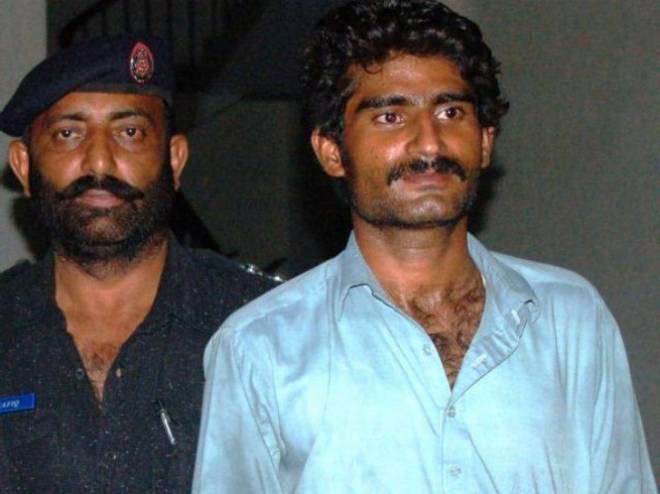By Arshia Malik
There are many women who are non-conformists and Qandeel Baloch, aka Fouzia Azeem, was one of them. Sticking two fingers to a deeply misogynistic, patriarchal society, she lived life the way she wanted. It is not an easy life to live — carefree and not bothered about the judgement and constant berating, ridicule and putting down from other compatriots, especially women.
There has to be a strong sense of injustice to go against the very grain of your own family, peer group, tribe or a ”collective conscience”. Her marriage to an abusive husband — before she became famous — is what caught my eye. There are reports in which she recalled one year of constant physical and mental abuse. I never could find out about her son, apart from the mention of his name, age and that he had been unwittingly and maliciously thrown into the limelight of his mother’s fiery profile.
Her account of her married life puts it in perspective for me the lives of women in severely misogynistic societies where women have internalised their place and role in life according to the men and mullahs. Conformity is achieved through:
- Compliance — when an individual accepts influence because he or she hopes to achieve a favourable reaction from another person or group);
- Internalisation — when an individual accepts influence because the content of the induced behaviour (the ideas and actions of which it is composed) is intrinsically rewarding);
- Identification — when an individual accepts influence because he or she wants to establish or maintain a satisfying self-defining relationship to another person or group;
- Ingratiational (when a person conforms to impress or gain favour/acceptance from other people.
People conform either because they are scared of being rejected by the group and want to fit in (normative conformity) or because they lack the knowledge to challenge the majority position (informational conformity).
Qandeel definitely smashed both these types of situations and went ahead to forge her own path in a blaze of glory, notoriety, infamy and brazen non-comformity. She upheld her individuality and in many ways actually started a revolution to reclaim her body, her will and her mind from the stifling collectivist culture of many Asian countries and ended up becoming an icon in the fight for equality for all, more in her death than life.

It is easy to see what is feared. Any woman who speaks her mind, or shows signs of individuality or sexual liberation, is immediately put down, almost always by the men because it somehow threatens their own sense of superiority and role of being the provider or patriarch followed in equal number by women because it ”rocks the boat” or threatens the status quo.
That Qandeel was both the provider, care-taker and decision maker is something her brother Waseem could not accept and succumbed to the barrage of taunts, ridicule and gossip of his fellow villagers who kept showing him videos and posts of her latest ventures.
The equally complicit journalists, social media analysts, editors, directors and owners responsible for leaking details of her life. The politicians who did not listen to her pleas for security and the hypocritical mullahs who blatantly exploited her and, when exposed, distanced themselves and may have even called out for her murder — all of them combined could not keep up with the fiery and no-holds-barred attitude of the woman who didn’t give a rat’s ass to their opinion of her.
Women are the last frontier and misogyny has no borders, east or west. We need non-conformist women in large numbers, whether they are defying the laws and norms laid down by the male-dominated religious dogma or the newly constructed feminist appropriations, wherein all cultures are deemed equal under the regressive cultural relativism.
From the poet Asma bint Marwan, the earliest dissenter in Arabia conforming to Islam, to all the women in the 21st century who are defying traditions or mind-sets which believe that women are meant for bedding, breeding and baking.

Patriarchy harms the men too. Waseem, the murderer of Qandeel, her own brother, will never be empathised for turning so against her that he drugged and strangled her in her sleep, and so took away their family’s bread-earner, a large family of 6 brothers and sister. I am not sure those are exact figures and whether there is another sister at all. No one is going to deeply reflect that he never stopped to consider the fact that she supported his aged parents, him and his addiction and was in the process of arranging for his marriage.
His perceived sense of his ”ghairat” (honour) which received a daily bashing by his fellow peers — who most probably would have resorted to lampooning her with cruel jokes in his presence — is what was challenged when his manliness would have been questioned in not being able to ”control” his sister or ”keep her on a lease” as is the South Asian language commonly prevalent. Hence his defiant murder confession to the authorities.
This is a time to introspect over the kind of society we have become and not resort to the easy, lame, old excuses of postcolonialism effects, postmodernist reductionism, and left-liberal apologia for the women-phobic strains in our religions.
This is the time to stand up for Qandeel and her courage, rather than bow down to the likes of Maulvi Qavi and his ilk.


